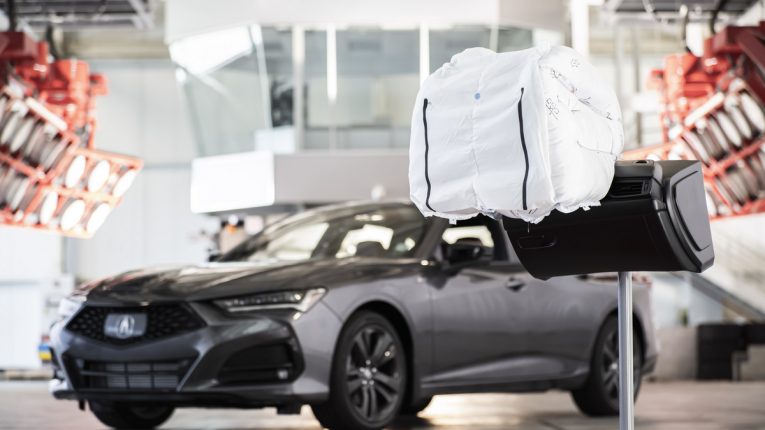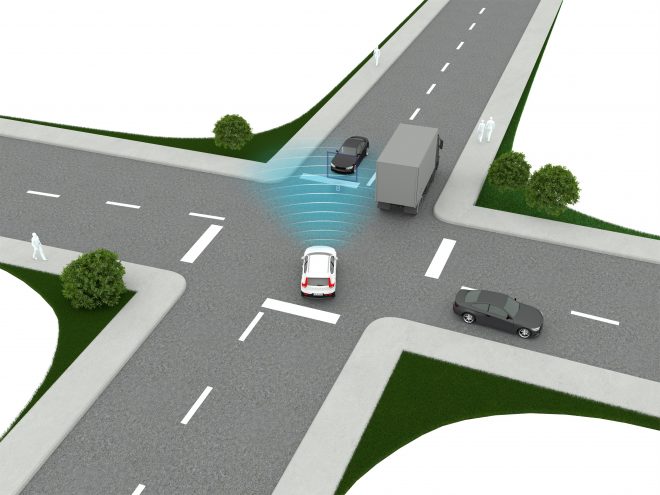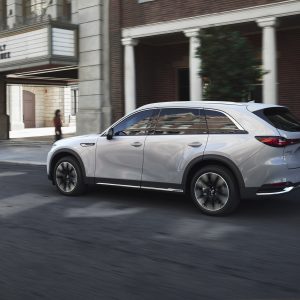
2021 Acura TLX Features Next Gen Airbag and Active Safety Tech
The all-new 2021 TLX sport sedan, arriving at dealerships this fall, continues Acura’s “Safety Through Innovation” approach to enhancing safety performance with the introduction of a world’s first passenger front airbag designed to address the issue of severe brain trauma commonly associated with angled frontal collisions. All cars need to have appropriate airbags installed, and would need an Airbag module replacement if not working correctly – so this new design is incredibly beneficial to the safety of the driver and passengers. A new video, released by Acura today, highlights the new airbag and other new technologies in the 2021 TLX.
This next-generation airbag technology is Acura’s latest advancement in occupant safety and ties back to earlier Acura innovations, including the world’s first vertically deploying front passenger airbag (1991), a unique design that reduced the potential for injury from a deploying airbag and was broadly adopted by the automobile industry in subsequent years. Similarly, the new front passenger airbag design first applied to the 2021 TLX this fall, co-developed by Honda R&D Americas and safety systems supplier, Autoliv, is now being offered to other automakers to enhance safety performance for their future products.
“This new Acura TLX is the latest example of our safety engineering team in Ohio pursuing important innovations to advance toward our goal of a safer and, ultimately, collision-free society,” said Jim Keller, President of Honda R&D Americas, LLC. “I’m very proud of how our engineers analyzed new brain injury research and then took action to achieve one of the most substantial advances in airbag design in decades.”
The 2021 TLX targets a 5-star Overall Vehicle Score, the highest available rating in NHTSA’s NCAP testing, along with an IIHS Top Safety Pick+ rating, including a GOOD rating in all collision tests and a SUPERIOR rating for frontal crash prevention.
World’s First Airbag Technology
The all-new passenger front airbag technology in TLX is designed to better manage lateral collision forces that can cause an occupant’s head to rotate severely at high velocity, or to slide off a conventional airbag, increasing the chance of serious injury. It was developed in part based on a landmark study of brain injuries led by scientists at the U.S. Department of Transportation, which resulted in the creation of the BrIC (Brain Injury Criteria) methodology for measuring brain injuries in vehicle collisions.
Rather than the single inflatable chamber of conventional airbag systems, the new airbag operates something like a baseball catcher’s mitt, with an uninflated panel first catching and decelerating the occupant’s head with less force, while also directing it inward between two inflated chambers to cradle and protect the head. Specifically, the new passenger front airbag uses four major components: three inflated compartments consisting of a center chamber and two outward-projecting side chambers that create a wide base across the dash and the uninflated “sail panel” that stretches between the two side chambers.
In addition to the new passenger front airbag, the 2021 TLX now includes knee airbags for the driver and front passenger. The knee airbags are designed to better control the forward motion of the occupants in the event of a frontal collision, in conjunction with the front airbags and seatbelts. Each knee airbag is contained beneath a panel on the underside of the instrument panel, which is contoured away from the knees, providing improved legroom and easier ingress and egress from the vehicle.
The 2021 TLX is equipped with eight airbags in total, the most ever for the model, including front, side and knee airbags for the driver and front passenger and side-curtain airbags with a rollover sensor.
Advanced Safety and Driver-Assistive Technologies
All 2021 TLX models will come standard with the AcuraWatch™ suite of advanced safety and driver-assistive technologies, including multiple new or enhanced capabilities designed to help the driver avoid or mitigate the severity of a collision or help them with typical driving tasks.
Enhanced Collision Mitigation Braking System™ (CMBS™)
The 2021 TLX’s Collision Mitigation Braking System uses a wider-angle forward radar sensing unit that can better detect objects ahead in the roadway, including pedestrians. With CMBS, the TLX can then warn the driver of a potential collision and, if needed, act to apply the brakes.
Driver Awareness Monitor
The 2021 TLX also includes a new Driver Awareness Monitor, which continually monitors and assesses driver behavior behind the wheel. Using input from the steering angle sensor to measure both the frequency and severity of the driver’s steering inputs to gauge awareness, the system issues a warning to take a break if it determines the driver is becoming inattentive.
Traffic Jam Assist (TJA)
The 2021 TLX now includes Traffic Jam Assist (TJA), a first for TLX. Working in conjunction with Adaptive Cruise Control (ACC) with Low Speed Follow and Lane Keeping Assist (LKAS), TJA reduces driver stress in highly congested traffic situations by helping keep the vehicle centered in the lane and at a set interval from a vehicle detected ahead.
Next-Generation ACE™ Body Structure
The new TLX also is designed with advanced levels of collision protection through the use of Acura’s proprietary Advanced Compatibility Engineering™ (ACE™) body structure, which has been further evolved in the new TLX body and other structural elements to provide additional occupant protection in a wider range of collision scenarios. The next-gen ACE body structure enhances occupant protection and crash compatibility in frontal collisions by using a network of interconnected structural elements to absorb and distribute crash energy away from the passenger compartment. In addition, the 2021 TLX central floor tunnel is made of high-strength steel and ties into the lower front bulkhead. This advanced structure channels crash loads into and through the tunnel instead of into the passenger cabin. Rear crash load paths are similarly dispersed.
In addition to helping protect the occupants of the new TLX, the enhanced frontal crash energy management of the ACE body structure can also help to more evenly disperse the forces transferred to other vehicles in a crash. Additionally, ACE helps minimize the potential for under-ride or over-ride situations that can happen during frontal impacts between vehicles of differing ride height.
Acura Safety History
The new technologies in the 2021 TLX build on Acura’s legacy of pioneering efforts in the area of vehicle safety, including both world-first technologies and leading commitments to the application of advanced safety features.
- Acura created the world’s first vertically deploying passenger front airbag in 1990, debuting in the Legend sedan. The innovative airbag was designed to mitigate the potential for injury occurring as a result of airbag deployment directly into the passenger.
- Acura was the first automotive brand to commit to the application of both driver and front passenger airbags for all models (1990), and fulfill this commitment with the 1994 Integra.
- Acura introduced the world’s first mass production automatic emergency braking (AEB) system with the Collision Mitigation Braking System™ (CMBS™) in the 2005 RL sedan, introduced in 2004.
- Acura also saw American Honda’s first application of its proprietary Advanced Compatibility Engineering™ (ACE™) body structure in the 2005 RL.
- Acura was the first automaker to receive the highest available safety ratings on all of its models from both the U.S. federal government (NHTSA) and the Insurance Institute for Highway Safety (IIHS), in 2015.
- In 2018, Acura was the first luxury automaker to fully deploy a comprehensive suite of advanced safety and driver-assistive technologies – AcuraWatch™ – as standard equipment on all of the brand’s sedans and SUVs.
Research & Development
Much of the safety development and testing of the 2021 TLX – including the development of the new airbag – was conducted at the advanced safety research center of Honda R&D Americas, LLC in Raymond, Ohio. This safety center is one the most sophisticated facilities for safety research, development and testing in the world and includes capabilities dedicated to advance crash simulations, pedestrian safety, collision testing and advanced restraint system development and tuning.









